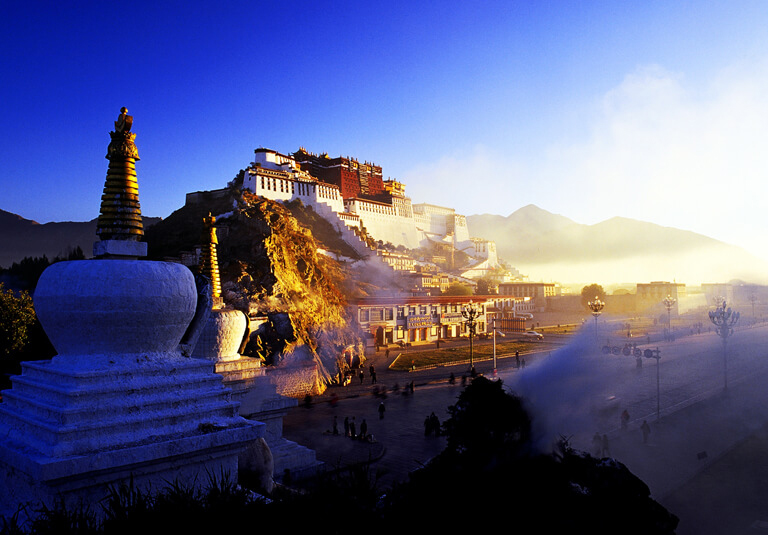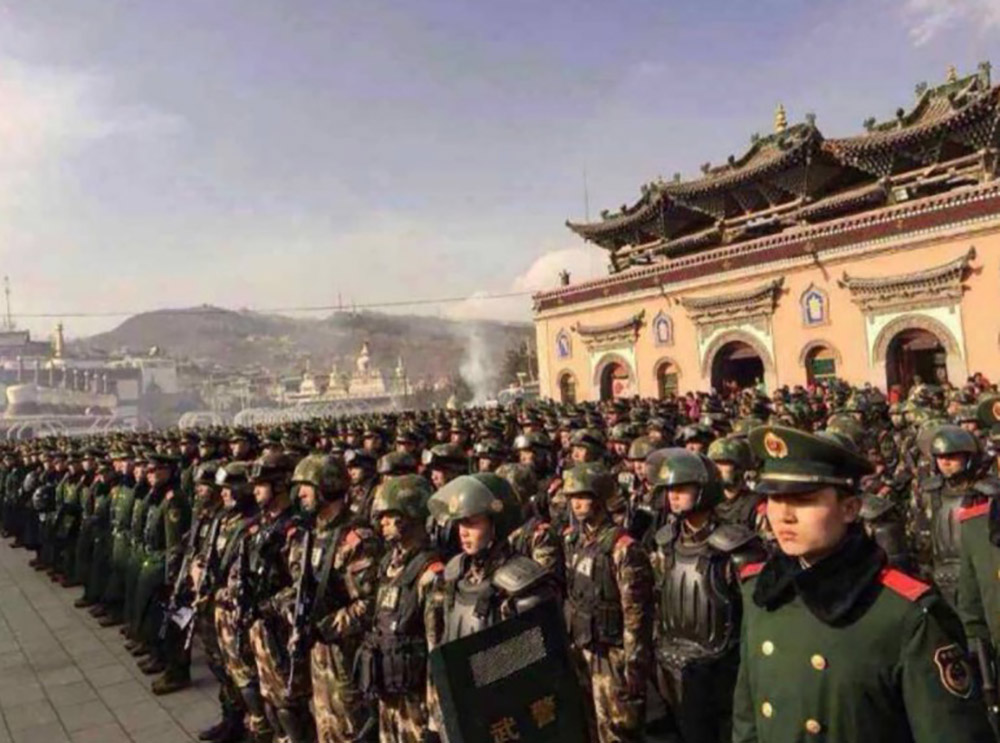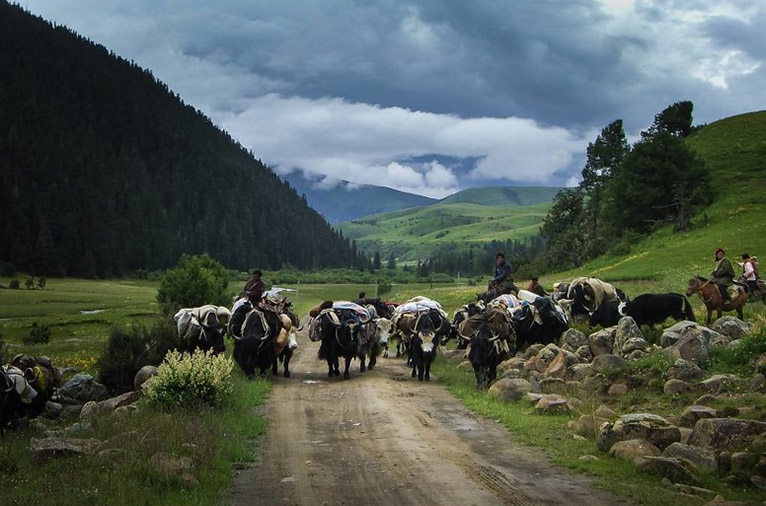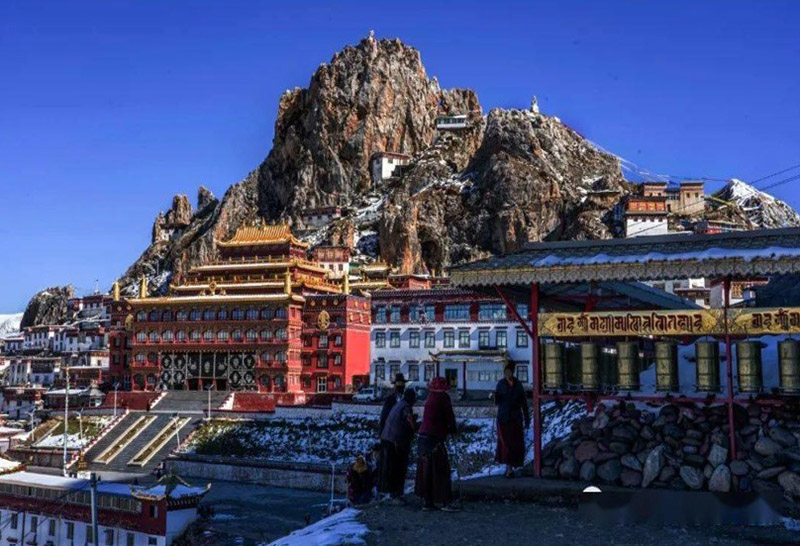Luo Zongyu* retraces his life’s journey from the Tiananmen Squares protest of 1989 through travels to Tibet and contacts with Tibetans and Chinese democracy activists, which resulted in him becoming an advocate for independence for Tibet – which forced him to flee China – and for his own homeland of Basuria.
DECEMBER 21, 2022
I am a Basurian patriot and an advocate for Basuria independence. I am against Chinese imperialism. I support the independence of Tibet, East Turkestan, Hong Kong and other [Chinese occupied] nations. I have been giving away Snow and Lion flags and the photos of His Holiness the Dalai Lama to Tibetans in [Chinese occupied] Tibet.
Let me talk about my experiences in more detail.
At a very young age, I felt the world around me was a bit abnormal, until the breakout of the June Fourth protest in 1989. This movement changed my fate. I wrote a diary. It was about what I have observed, but mainly about what I overheard from a private conversation between my dad and a relative. My diary basically said the students were good. They were not mobs. Later my homeroom teacher broke the drawer of my desk and read my diary. In a class meeting titled “criticizing the current situation”, the teacher openly said that “our class now has a little counter-revolutionary.” It shocked me a lot at the time, because I knew clearly what “counter-revolutionary” meant under such a situation. Thus, I tried all the methods to run away from the school. In the end I transferred away and enrolled in a middle school in a county town to further my education.
Although I now have a completely new understanding of June Fourth 1989, it still had a profound influence on me. So much so that I later tried all the tricks to include the number “8964” on my license plate (In China, 8964 is a sensitive word. Normally you can’t have it on a license plate. I probably took advantage of a bug in the system and chose such a plate). I put it on one of my SUVs. But due to the problems along with the diary accident, I quitted school and later established a business with my dad. Now I own several factories and companies.

During this time, I continued to debate with people on the issue of democracy on local forums. Local police had knocked on my door. On the 100th anniversary of the birth of the Republic of China, I hung the flag of the ROC on my Ford Focus. I was stopped by the cops and [forced to] take it down.
My deep appreciation for Tibet came from Sichuan’s connection to it before and after China’s invasion of Tibet. Locally, many people had business in Tibet. Some were enlisted there. I left my home around 14 to 15 and traveled to Lhasa, where I stayed with my friend for a short period. This was my first trip to Tibet, my first trip to Lhasa. This experience fundamentally changed me and connected me strongly to this land.
At the time, me and the soldiers under the command of my friend were about the same age. We knew each other well. One thing that happened then struck me. Once, a Tibetan old lady was picking up trash outside the barrack. A few soldiers just started beating her up. I was shocked because this old lady did nothing dangerous. As I was about to intervene, a soldier stopped me. I asked him why they were beating up an old lady who did not do anything except for picking up some trash. He said something that stuck with me today: “you just have to beat them up like this. There is no other way”.

Eventually, I began to learn more about the history and current situation in Tibet, as well as its relationship to China. As I discovered more historical truths, I began to have a great sympathy for Tibetans. In addition, I began to love the land, the people and their spirit. During this time, my political consciousness was also transforming. From [a supporter of the] June Fourth 1989 which planted seeds of democracy in me to a fan of the ROC, I began to contact Chinese democratic movement leaders (one from Chongqing who is now in the Philippines and another one who is now in the U.S.). I was disappointed in them. I learned the lesson that “China” and “democracy” are contradictory, like fire and water. Anyone who identifies him/herself with “China” or “the Chinese nation” is a “Chinese imperialist”. There was one saying years ago: If you want to see if a person really has a potential for democracy, you only need to look at his/her opinion on [the independence] of Tibet and East Turkestan.
After I grew up, especially after I owned my first SUV, I drove to Tibet a lot. I came to know various Tibetans. During the process, I found that they all have a strong sense of national unity. (By the way, there was one very interesting thing that can demonstrate the unity among Tibetans. Two gangs of Chengdu-ers I knew were set for a fight. Both sides invited their Tibetan friends, but when the Tibetans arrived, they said: we Tibetans don’t fight each other. You solve your problems among yourselves.) They have the utmost respect for His Holiness the Dalai Lama. Thus, I had the urge to do something for them.
I thought the best I could do to support the independence of Tibet was to give away the flags of mountain and lion. It could boost their national identity. It could also help me to understand them more. Probably around the end of 2016, I printed a few hundred flags (later I added photos of His Holiness) and gave them away to Tibetans who looked reliable. There was one time I met a lama from Amdo in Thailand. I was surprised because few Tibetans could get a passport and travel abroad. I even had suspicions. But after talking, [my suspicion was gone]. We exchanged our phone numbers. When I visited him in Taktsang Lhamo Monastery later, I gave him some flags. We haven’t met since, as he left the monastery and returned home. His Mandarin is very good. He can understand pinyin and Chinese characters.
As I was traveling around many Tibetan regions (especially the ones inside Sichuan province), I avoided major cities, because cities were more dangerous to Tibetans. Since I drove an SUV, I was able to get to quiet places with few people. The only city where I gave away flags and photos was in Zoige county. They were given to a Tibetan who also drove an SUV. It was the second time that I met him, so [I could trust him and] gave him some flags and photos. To my surprise, he texted me at 12am in the morning and wanted to have a talk at where I stayed. He told me that the flags were dangerous, but the photos of His Holiness were less so. He said to me that either he would return them to me or he would dispose of them himself. I left the disposal to him.
There was another time, near the Yala mountain where few people would go due to the poor roads, that I met a Tibetan on horseback. He was herding yaks. His Chinese was poor. We mostly communicated with hand gestures. After a while, I gave him some flags. He was very excited, but he also understood the danger. He asked me not to show them to people easily, as he gave me a gesture of beheading.

There was also a gas station staff member, a Tibetan. I knew her long ago. After I gave her some photos and flags, the topic of our conversation changed. She invited me to her home. She said that her dad would love to chat with me. What a pity. I don’t know if I could ever take that offer in the future.
In the summer of 2018, as I returned from Lhasa to Sichuan on my bike, I met two very young Tibetans near the Dengqen county. They seemed to love bikes as well. They liked my bike and we started talking. After that, I gave them flags. I thought they might be too young to understand the meaning of the flag or even to recognize it, but I saw the light in their eyes as I took out the flags. They kept asking me where I got them, so I gave them a few more. I realized that the national unity of the Tibetans is inherited through generations. Because I used to only give flags and photos to older Tibetans, I subconsciously thought that young Tibetans would not recognize the flag or understand its meaning. They changed my understanding of Tibet

While I did exchange numbers with a few Tibetans under special occasions, most of the Tibetans I came across left no numbers. We all understood why. We couldn’t take photos together either. Photos are evidence. If I ask a Tibetan for a photo together, it would make me look very suspicious. It would also cause them much trouble. Still, I have some photos of the mountain and lion flag and the flag of Sichuan independence. My car and my bike all have Free Tibet on them.
I have a twitter account registered in 2012. This account changed my political views. I changed from a support for China’s democracy to China’s dissolution and the independence for Chinese occupied nations. In the summer of 2019, a captain from my city’s national security bureau called me. He asked me to come over for something I said online. I didn’t know what [exposed my identity] because I haven’t said anything bad about the Chinese Communist Party (CCP) or China for several years online. I told one of my friends something like “If I couldn’t make it out today, you should do this and that”. After that, I carried a phone I barely use and went to the bureau. The captain’s attitude was fine. He just asked me several times to confirm if I’m a local. After some chatting in the captain’s office, he basically told me that I was in big trouble. He said it was okay to be anti-communism, but I was being anti-Chinese. I was charged for secession and inciting subversion of state power.
The process of the interrogation centered around my life experience and why I would support secession. For the most part I stayed silent. The captain asked me if I was prosecuted by the CCP, I said no. I said my support for secession had nothing to do with whether I was prosecuted by the CCP or not. They asked me to turn over my phone. They need to do some “technical processing”. So I gave up the phone that I barely used. It didn’t have too sensitive information or photos. It only had some problematic (for China) softwares [I intentionally left there] and some [minor] information. At last they asked me to sign a guarantee and give up my twitter account. The captain implied that since I was a local and had companies and other assets locally, they wouldn’t charge me criminally. But they hoped that I do as the guarantee says or I would be in big trouble. The whole interrogation lasted for about 3-4 hours. Even after this, I still only considered the guarantee a document I signed against my will. If I argued with them back then, I would probably be put in prison. I have families in China [that I have to take care of]. My company and tens of my employees would also be involved.
But I never stopped doing what I thought was right. Between the call from the captain and my escape from China, I still managed to go to Tibet 4 to 5 times. I gave away tens of flags and many sets of photos (6 photos per set). When I left China, I still had many flags and photos. I hid them in a car that I barely drove. This car was parked in a very remote place.
[The event that led to my escape from China] was when I traveled with a friend to Dartsedo (Kangding) to see Gonggar mountain. I met three “Tibetans” and chatted with them. While talking, I gave away the flags and photos to them [like usual]. But when they left, my friend told me that one of the three “Tibetans” took a picture of me holding the flag and my license plate while I wasn’t paying attention. Immediately I left with my friend and drove home. After thinking about the whole encounter when I got home, it did seem weird. It was even questionable if the three “Tibetans” were really Tibetans. Two of them didn’t have the light in their eyes I usually saw in most Tibetans when I gave them the flags and photos.
—
* Luo Zongyu is a PhD student majoring in history in Binghamton University, United States.


